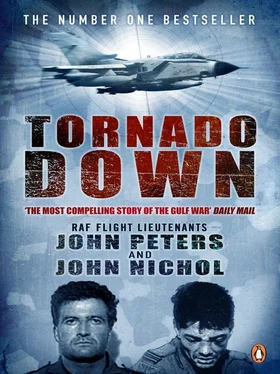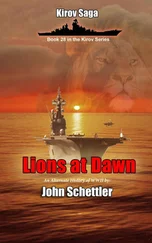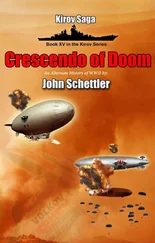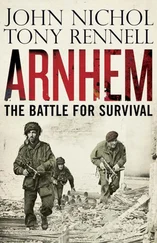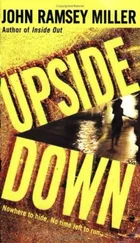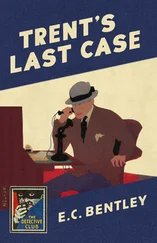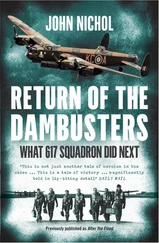* * *
ST MAWGAN, Cornwall. John Nichol: I was at the St Mawgan airshow that particular day. It was the Wednesday after the Iraqi invasion. John Peters was back in Germany.
It was a typical airshow: all your aircrew mates get together the night before, you go to the bar and have a few drinks, then you round off the evening by having a few more drinks. Occasions like this are all part of military aircrew culture, and have not changed since the first guy in a string-bag with a gun strapped to it got his wheels unstuck from the Flanders mud. The form is fairly easy to pick up; all you need is a hard head and a good line in bantering conversation.
Next day, the routine was: don the coolest available pair of aviator shades, strike Top Gun attitude, have photograph taken with members of the public, answer questions about the jet, be friendly. The public pays our wages, the public pays for the jet; so it is not unreasonable that people might want to find out how their money is spent now and again. One of the most common questions, from the smaller manifestation of boy, is: ‘What’s it like flying in a Tornado?’
This is quite a difficult question to answer. The reason for that is simple: it is like nothing else. In the grey pre-dawn drizzle you clamber up into your big ugly mechanical monster, snuggle down into your seat and snap shut the canopy. Now you are in a different world, enclosed, autonomous, completely shut off from the outside, with a beautiful cosy electronic whine in the background: a comfortable, well-appointed office for two, everything within arm’s reach, a bargain at £ 15 million. You press a few buttons and glance around the cockpit to ensure that all the systems are ‘up’. In seconds the turbine temperatures leap from ambient to 400 degrees Celsius.
After a call to Air Traffic Control (ATC), you taxi the Tornado out of its hardened concrete kennel to the take-off point. On the way, there is a continuous dialogue between the front and back seats, between pilot and navigator – essential challenge and response checks to ensure no stupid errors are made. Then you are cleared for take-off; you line up and do the final engines’ check. Holding the aircraft on the brakes, the pilot advances the throttles through maximum dry power, to mid reheat, then to full reheat. In the dawn light you can see the glow from the flames shooting out thirty feet behind, feel the brakes straining to contain 30,000 pounds of raw thrust. Brakes off, and you are kicked back into your seat. The 0-60 mph acceleration time is slower than that of a Ferrari Testarossa, but the 0-200 mph time and the acceleration beyond that is certainly better. At 160 knots the air-frame shakes itself clear of the runway, gear and flaps up, and at 200 feet you slip into the lowering grey undercast. With the throttles back out of combat power, where the fuel usage is an awesome 600 kilograms a minute, the pilot eases the nose up, you say goodbye to ATC and you are free, climbing steadily skywards through the thick northern European clag. The altimeter winds up and then suddenly at 12,000 feet you break out into that part of the world where the weather is always nice, the sun always shines and the sky is a beautiful deep blue.
The best part is looking down on ‘civilisation’ below, visible occasionally through the gaps in the cloud: it is only 0730 hours, but already you can see the rest of the world coming to life, waking up and going to work. Lines of cars in traffic jams stretch out below you, their lights on, wipers too probably, the drivers smoking, getting frustrated, checking their watches, listening to the bad news on the radio and a miserable weather report. And you have escaped their drudgery and trudgery and cannot help but feel sorry for the poor bastards, while you are high in the blue, in heaven with an electronic whine. It is hard, sometimes, not to feel superior. This is why some fast jet jocks, especially single-seater pilots, develop unmatchable egos and feelings of godlike supremacy. You have to do it to feel it.
Try explaining this, or even some of it, at an airshow without sounding like you are just trying to impress! But it’s a different kind of challenge, at least, to flying the thing.
We were standing by the aircraft, soaking up endless questions, juvenile admiration, and the Cornish sun, when the station Tannoy system barked into life: ‘The Captain of the Victor is to report to Station Operations immediately. The Captain of the Victor is to report to Station Operations immediately.’ Within minutes of this announcement the whole Victor crew scrambled out of Station Ops, sprinting across the airfield to reach their aircraft.
On the way past, one of them shouted, ‘We’re on thirty minutes’ notice to go! We’re going out to the Gulf!’
And we were laughing at them! We called back, ‘Tough shit, mate.’
Shortly after this little flurry of excitement, the 17(F) Squadron crew standing by the Tornado next door to us got the call. We had a laugh at them, too, but not for long. Twenty minutes later, the Tannoy system crackled out: ‘The XV Squadron Tornado crew is to report to Station Operations immediately.’
‘Oh oh,’ I thought. ‘Surely some mistake?’ I looked at Cliffy, my pilot; he ran across to Ops. A very few minutes later, he came back, a changed man.
‘We’re also on thirty minutes’ notice to move,’ he said. ‘To the Gulf!’
To which I replied, ‘Naah – never. Don’t be daft!’ It was beyond belief.
‘Yes,’ he said, ‘the Squadron is on notice to move to the Gulf. We’ve got to get this aircraft ready to go, now…’
That wasn’t quite so funny.
This went on for the rest of the day. There was a Jaguar there, two Tornados and a Victor, and everybody was told to ready their aircraft for a return to base, immediately on signal. I kept thinking, ‘We’re going to go to war here, we’re going to do what we trained to do, but never thought we’d have to do. They could’ve given us a bit more notice!’ The atmosphere was amazing. I was scared, but it was electrifying.
By now most of the public had cottoned on to what was happening; they kept coming up to us and wishing us good luck when we got out there, wishing us all the best. It was like suddenly being plunged into a Hollywood blockbuster about war, but without having rehearsed the roles. It felt like all this was happening to someone else, but surely not to me? The news hit us with a real bang: the Victor crews were told they were flying straight out from the airshow at 0700 the next morning, and meeting fourteen Tornados over the North Sea for an immediate training exercise. They were going to practise their first ever air-to-air refuelling. These were the RAF Brüggen squadrons, 17(F) and 14, which were among the first to go to the Gulf a few days later.
Order and counter-order fizzled and flew. As evening came on, we were told, ‘It’s OK, stand down.’ So all the remaining crews rendezvoused in the bar and stood themselves down. The storm had blown over – for the moment. We would fly the aircraft back to their squadrons the next morning. Meanwhile, the ‘standing down’ was going so well that a Scud missile explosion in the left ear would not have woken some people at the end of their standing-down sessions. There was a brilliant atmosphere; a feeling of slight madness in the air, of ‘live it while you can’ euphoria. Of course, nobody got ‘drunk’ – after all, we were flying the next day. But two people ‘built a shed’, one ‘was off his trolley’, another ‘fell out of his tree’, and the rest were ‘completely off the plot’. ‘Drunk’ is not a word the RAF uses much.
Simon Burgess, a 17(F) Squadron pilot, was in the bar. We were laughing and joking. Towards the end of the evening, I was running around the bar with a tea-towel on my head, pretending to be an Iraqi.
Читать дальше
